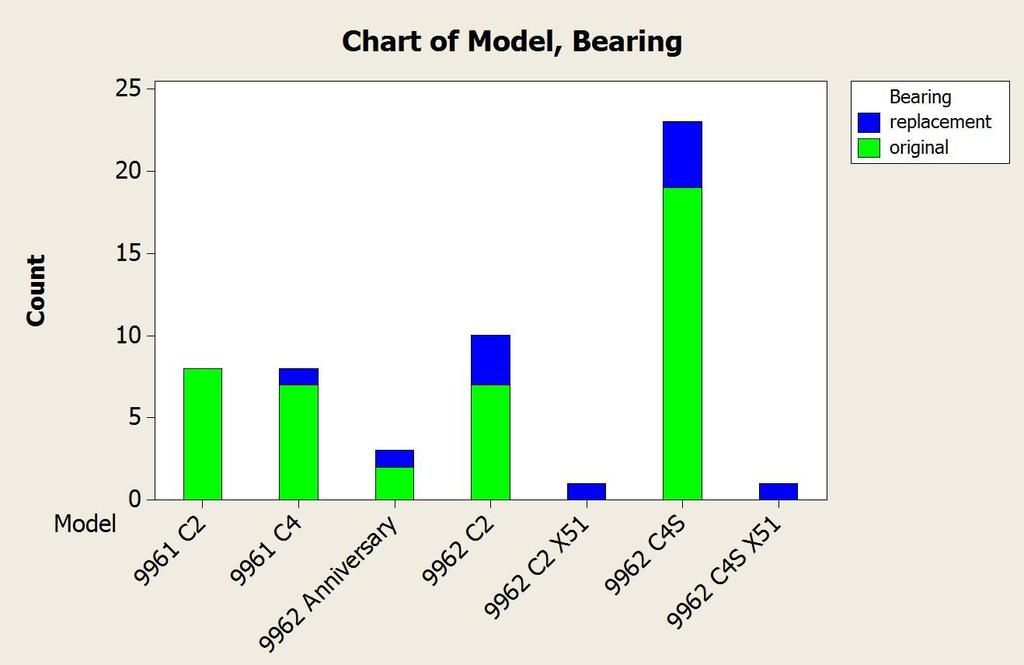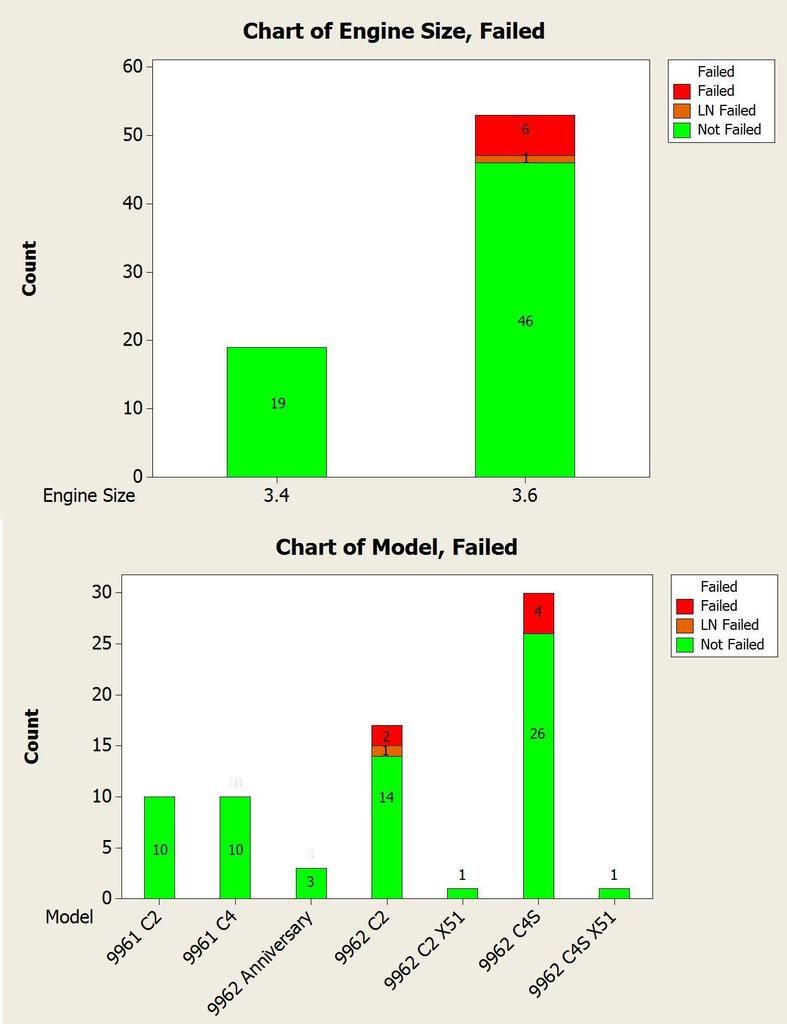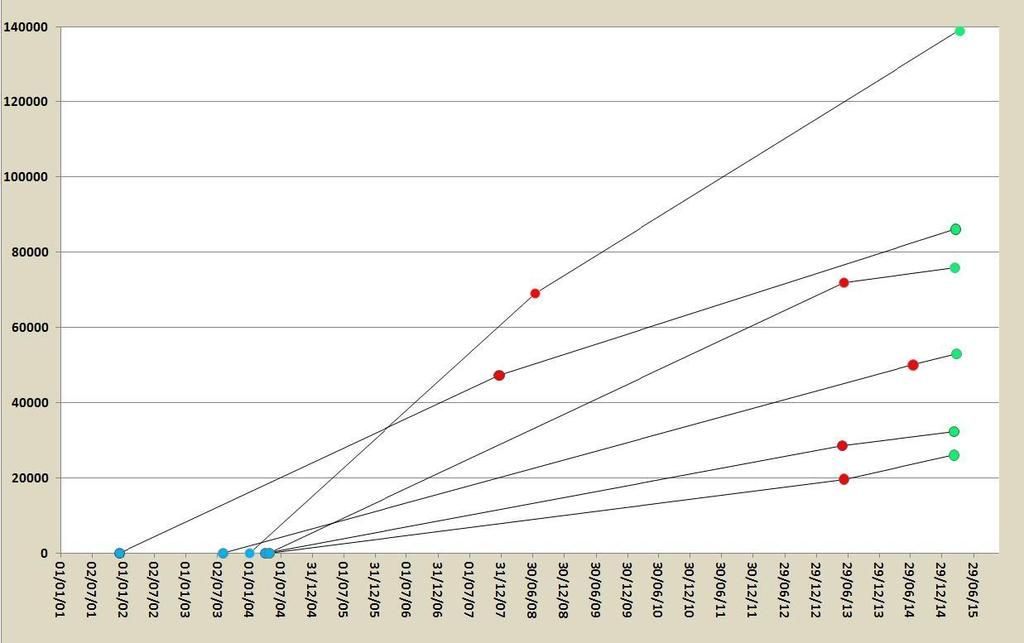Chris_in_the_UK said:
alex yates said:
I'll post some info over the weekend on replacements.
:thumbs:
9962 C2 X51 3.6 replaced at 49,000 (preventative)
9962 C4S 3.6 Bearing replaced for peace of mind and showed minimal play. Dust shields removed
9962 C2 3.6 Parr replacement - preventative - original found to be in perfect condition. Bearing replaced for peace of mind and improve residual value of car
9962 C2 3.6 IMS replaced October 2014. Replaced IMS with modified kit from Northway alongside with new RMS which needed doing. Mix of Porsche and Specilalist history
9962 C4S 3.6 replaced twice in the space of a few months by the previous owner at Parr (original replacement LNS? failed very quickly and engine was leaking oil?). assuming it actually failed, the original was replaced Q4 2012
9961 C4 3.4 replaced by me at 95k as a preventative measure. Bought from Pelican parts. Single row bearing used to replace double row. Old bearing was in perfect condition.
9962 Anniversary 3.6 Upgraded Hartech bearing now fitted
9962 C4S 3.6 I had the bearing replaced when I bought the car as a preventative maintenance thing (LN bearing). (The original turned out to be fine BTW).
9962 C4S 3.6 IMS was replaced in February 2011 during Hartech engine rebuild. The rebuild was primarily to fix bore scoring, I assume IMS was replaced as a preventative measure rather than failure.
9962 C4S X51 3.6 Previous owner elected to go for a replacement clutch/RMS seal/IMS bearing (ceramic I think) during a major service in 2001 @ 12,000 miles. Not due to any problems but rather as a preventative/upgrade.
9962 C2 3.6 bearing: Original removed but was till in good order, @58k , bearing 2: Hartech, no seals: Removed but still in good order, @85k, bearing 3: Hartech, no seals: Currently fitted.





































